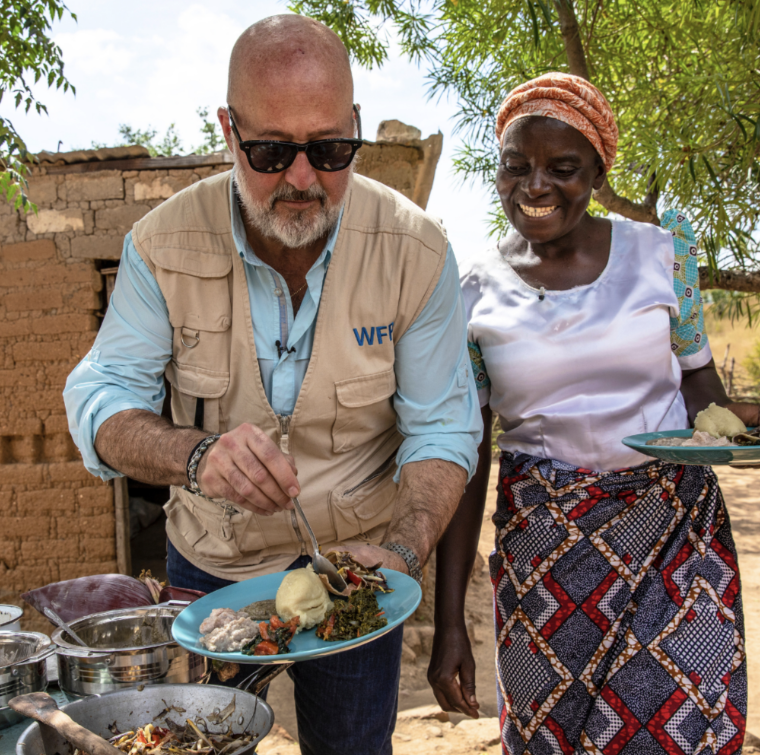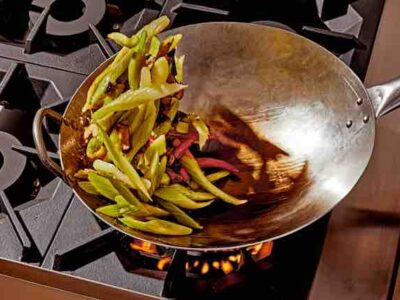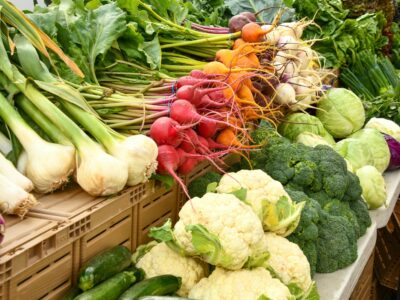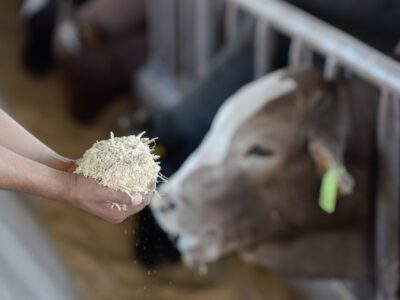(Bloomberg) —
“Recently, I was talking to a fisherman in a small town in Italy. His family has been fishing there for as far back as anyone can remember. Twenty years ago, he told me, he was pulling in 400 pounds a day. Now he is lucky to get 40. I would like to tell you its a unique story, but it’s not.” Chef Andrew Zimmern’s third season of Wild Game Kitchen is coming this fall on the Outdoor Channel. The chef, who has a substack newsletter called Spilled Milk, has been in many refugee camps and wants people to understand the connection between climate change and famine. As told to Leslie Kaufman.
I can’t remember a time that I wasn’t interested in cooking. I’ve been doing it since I was a little kid. That included collecting our own food. We didn’t go fishing to put fish on our dinner table, but we ate everything that we caught. I saw pictures of my great grandmother and my grandmother in their victory gardens during World Wars I and II, and I just thought, well, this is how people feed themselves.
When I was about eight or nine years old, my mother woke me up at like three in the morning and took me to a beach near our house on the South Fork of Long Island and we sat there drinking hot chocolate, and watched fishermen arrive in the truck and pull these giant long boats down to the water’s edge and launching them into the surf. We watched them as dawn came up, collecting the fish for local fish stores and restaurants.
Then my mother said, ‘Someday this is all going to be gone.’ And that ‘someday’ was just three years later when there were no more boats being kept on the dunes because people bought the land and put their houses there. That’s when I learned the connection between food and different types of change.
Once I had a platform through my show on the Travel Channel, I started working with all kinds of hunger relief organizations and then with international refugees through groups like the UN World Food Programme. At this point, there are very few refugee camps in the world I’ve not been in. I’ve seen the strife that has been caused by conflict and climate change.
I’ve been in refugee camps in Western Africa and seen families make decisions about which person in the family gets fed and which doesn’t. Then I come back to my house, and I feed my child who’s never known a hungry day in his life and it makes me cry.
People who say that hunger is not about climate, but about waste or distribution, aren’t seeing the forest for the trees. It’s all related. Intertwined. I can give you 100 examples of how the movement of just 100 miles of regular rain can actually disrupt an entire city and food system.
Refugees in refugee camps all want to go back to their countries of origin, even though situations in their home country may be awful. What prevents them is a lack of food. And increasingly every year, more and more of that has to do with our changing climate, especially in growing regions around the world that can’t sustain themselves.
In Zambia, there were terrible droughts in 2018 and 2019, but I just returned there with the UN and it is a much less desperate situation now. So now when a small farmer grows a little extra, he can walk four or five miles and give it to someone who can properly store the food and get some extra cash. This helps feed them in a down year.
The UN WFP is bringing seeds that are increasing crop diversity so that these farmers a have backstop against the climate crisis. So instead of just growing maize, corn for the Nshima, the national dish, which is a corn mush, they are growing drought-resistant greens, which is also good for nutrition.
But the crisis with our climate is growing at an accelerated pace. I’m desperately worried. I want to see more development aid and bigger solutions for Zambia and for all the other countries in the world where we could really stave off hunger.
–With assistance from Leslie Kaufman.
© 2023 Bloomberg L.P.





